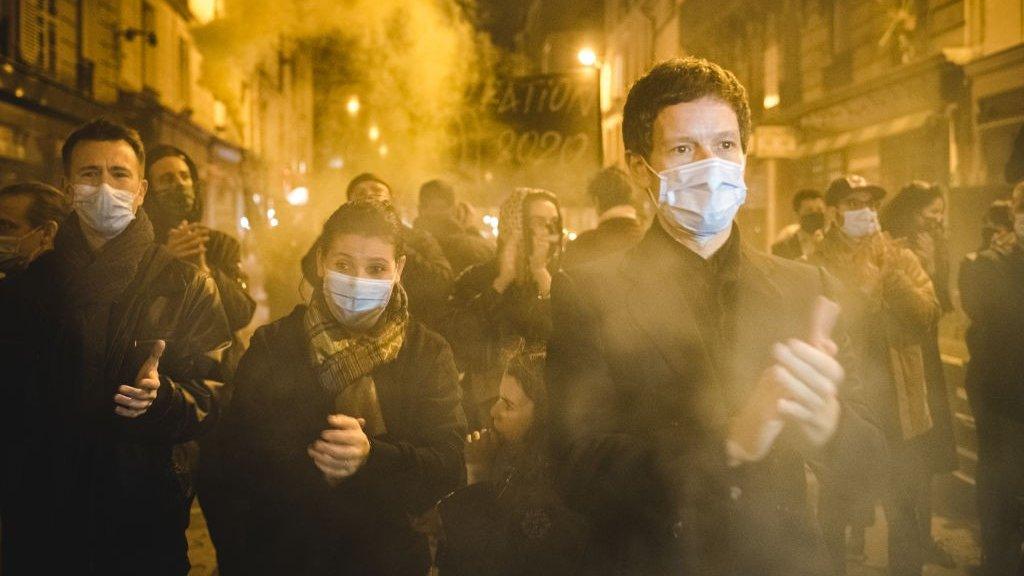Coronavirus: 'Momentous' errors worsened Austria ski resort outbreak
- Published
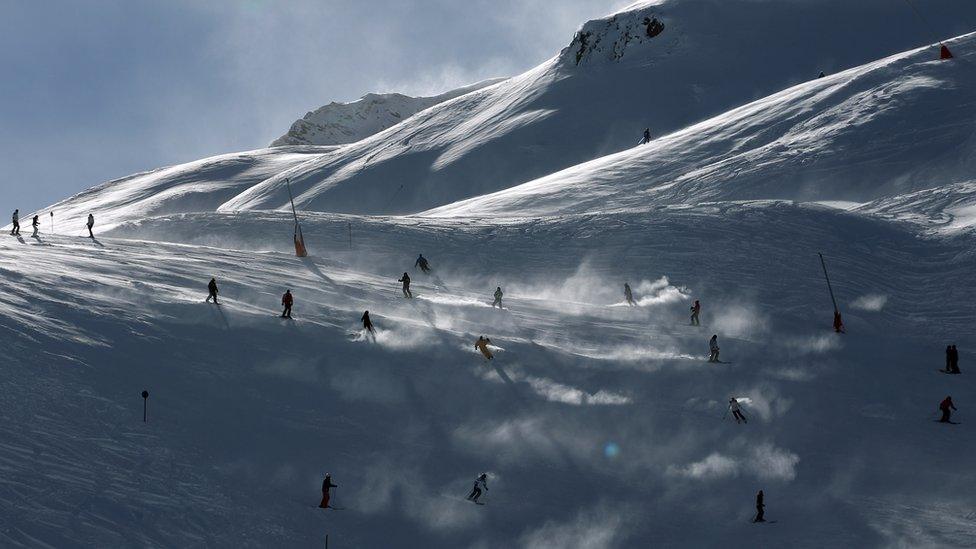
An outbreak in the Ischgl ski village was linked to cases in 45 different countries
One of Europe's first coronavirus outbreaks could have been contained by the Austrian authorities, an official investigation has found.
Outbreaks at two popular ski resorts in March led to thousands of new cases and were worsened by "momentous miscalculations", the report said.
One resort, Ischgl, was linked to cases in 45 countries after skiers brought the virus home with them.
Authorities have said they acted based on what was known at the time.
"There were errors of judgement that had consequences," Ronald Rohrer, the head of the commission that led the investigation, told a press conference on Monday.
"They reacted too late," he added.
What did the report find?
Investigators said authorities were too slow to close the resorts in Ischgl and nearby St Anton when the outbreaks became clear.
A group of skiers from Iceland reported Covid-19 symptoms on 3 March, and by 5 March the authorities were aware that a coronavirus outbreak was likely, according to Mr Rohrer.
The first case at Ischgl ski village was reported on 7 March when a bartender tested positive. Austria's public health agency has since said it believes there were cases at the resort as early as 5 February.
"From 8 March, a correct assessment should have led to the closing of bars, the stopping of ski lifts and orderly management of departures" of tourists, the report said.
But, instead, tourists were not informed and the resorts in the western Tyrol region remained open for several days.
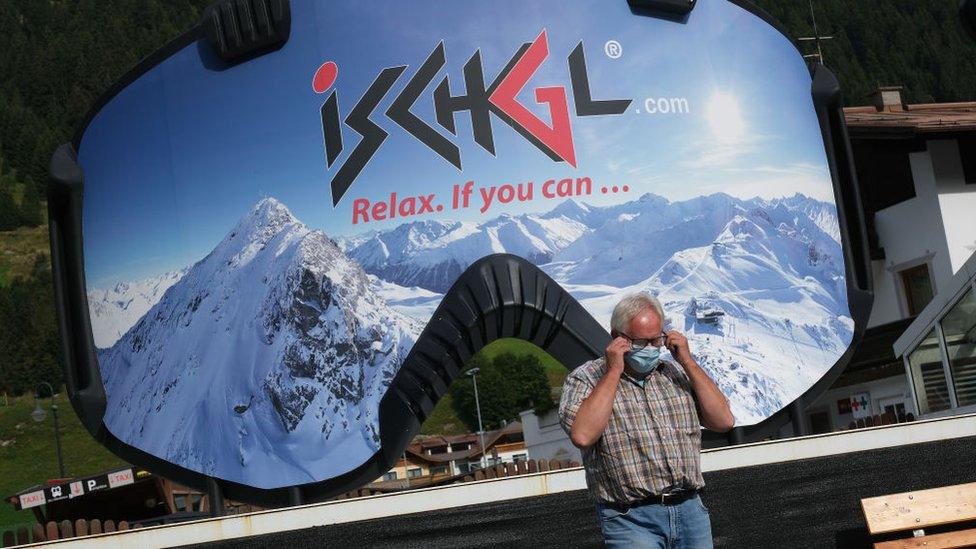
A full lockdown of both resorts was announced on 13 March, and thousands of tourists were forced to evacuate within hours.
"That created a panicked reaction from guests and workers," Mr Rohrer said. "Some of the guests jumped into their cars with their ski boots still on."
The report said Chancellor Sebastian Kurz's government had failed to communicate properly with both the local authorities and foreign tourists.
But Mr Rohrer stressed that, in some respects, the authorities had reacted "appropriately" to the rise in cases.
He added that the intention of the report was to allow Austria and other countries to "learn from the mistakes of the past".
Legal action
Several lawsuits have been filed against the Austrian government over the outbreak.
A consumer rights group has filed four civil suits, and says it hopes to bring at least one class action lawsuit next year on behalf of thousands of people who were at the resorts.
The Consumer Protection Association (VSV), a private organisation in Austria, said it was seeking damages of up to €100,000 (£92,000; $117,000) for the individuals involved in the civil suits.
The authorities maintain they responded appropriately according to the information that was available at the time.
Peter Kolba, the head of VSV, said last month that a hasty and delayed quarantine and evacuation on 13 March led to tourists having to take crammed buses, which led to further infections.
He said that at least 32 tourists had died after visiting the Austrian resorts.

How the outbreak spread
5 March: Iceland puts Ischgl on a list of coronavirus risk areas, after a group of skiers picks up the infection there
7 March: A waiter at an après-ski bar called Kitzloch tests positive for Covid-19. Kitzloch is ordered to close two days later
13 March: The Paznaun valley, including Ischgl and the resort of St Anton am Arlberg, are quarantined, followed a couple of days later by Sölden
Foreign tourists are still allowed to leave, further spreading the virus
- Published23 September 2020
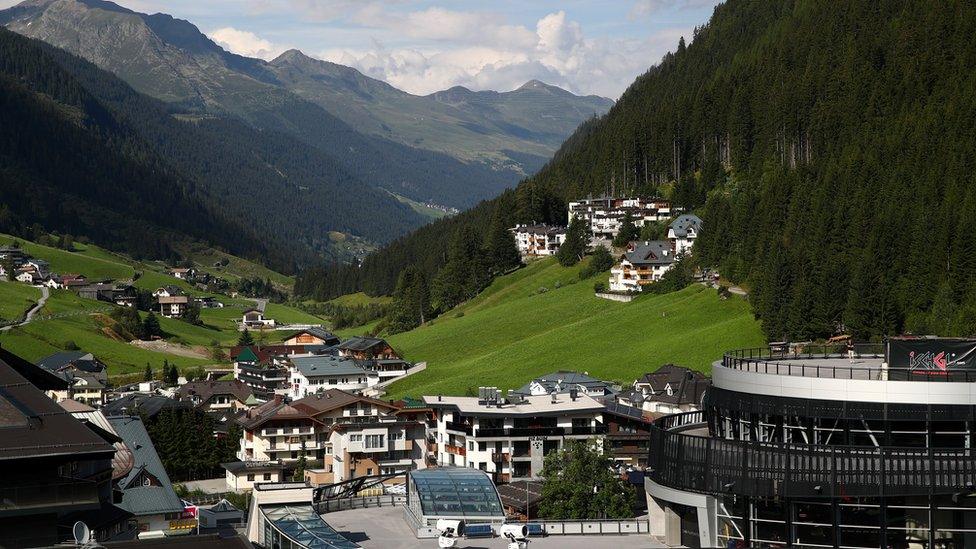
- Published23 April 2020
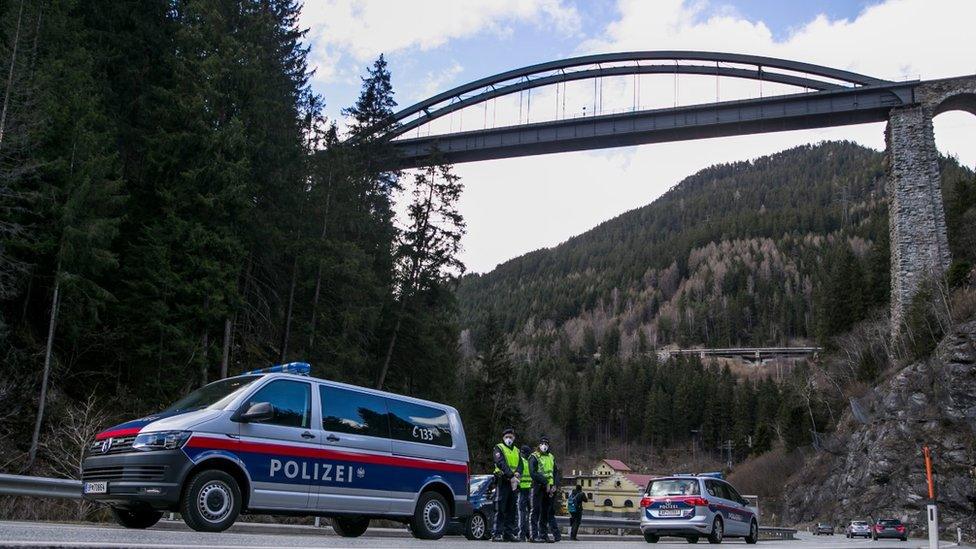
- Published12 October 2020
